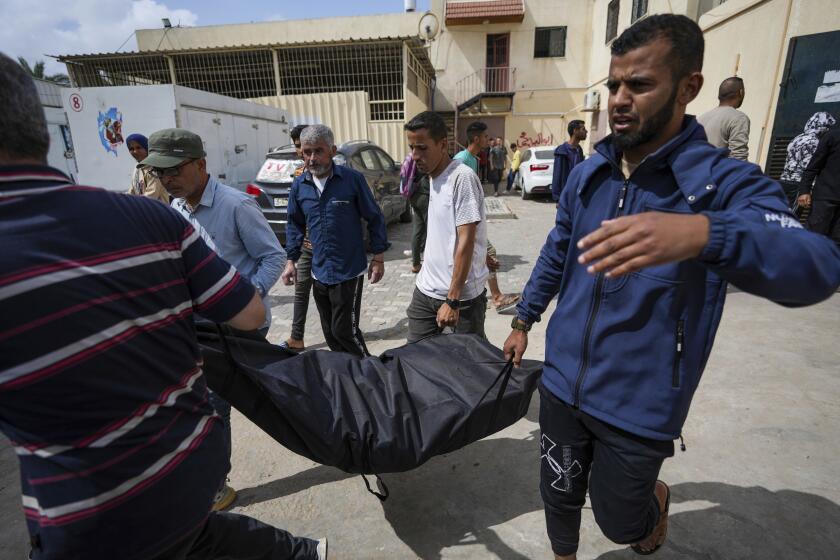Iran’s new leader causes furor with remarks about Israeli occupation
JERUSALEM – Even before he has been officially inaugurated, Iran’s newly elected president, Hassan Rouhani, got a lesson in the power of his words in a region known for hot rhetoric.
Rouhani was quoted -- wrongly, he later said, by Iranian media Friday as likening Israel to a “wound” inflicted on the Muslim world that “should be removed.”
The alleged comment, made during an annual Quds Day ceremony to demonstrate solidarity with Palestinians, drew immediate condemnation from Israeli officials, who said it proved the new Iranian regime is not as moderate as some in the West may hope.
Iranian politicians and religious figures have frequently questioned the legitimacy of Israel and prayed for its extinction, sometimes calling the country a “cancer” that needs to be excised from the region.
But after Rouhani’s purported comments spread quickly on Twitter and other social networks, Iranian state media reported that he had been much more measured in his words. Instead, the new president -- to be inaugurated Sunday -- called the occupation of Muslim lands, mainly Jerusalem, as a “wound” and he said nothing about anything being “removed.”
A video released by Iran’s Press TV seemed to support the official translation.
“In our region, there’s been a wound for years on the body of the Muslim world under the shadow of the occupation of the Holy Land of Palestine and the beloved Al Quds [Jerusalem],” Rouhani said in the video. “This day is a reminder that Muslims will never forget their historic right to resist oppression and aggression.“
Israeli officials rejected the correction, saying Iranians frequently make extremist statements about Israel and then try to retract them amid international outrage.
“Rouhani’s true face has been revealed earlier than expected,” Israeli Prime Minister Benjamin Netanyahu said in a statement issued Friday.
Netanyahu’s statement, issued before Iranian media revised Rouhani’s comment, seemed to anticipate an attempt by Iran to back away from the quote.
“Even if they will now rush to deny his remarks, this is what the man thinks, and this is the plan of the Iranian regime,” Netanyahu said. “The president there has changed, but the goal of the regime has not.”
Contacted after Rouhani’s revised statement was released, Netanyahu’s spokesman, Mark Regev, said Israel believed that the original interpretation reflected Iran’s true “extremist agenda.”
It’s not the first time there has been a dispute over an Iranian president’s statements on Israel. In 2005, President Mahmoud Ahmadinejad was quoted as calling for Israel to be “wiped off the map.”
Israelis quickly jumped on the perceived threat, accusing Iran of genocidal intentions and using the comment to underscore the potential threat of a nuclear-armed Iran.
But numerous critics and some Israeli officials later acknowledged that Ahmadinejad’s comment had been mistranslated, and his statement was more accurately an expression of hope and desire that Israel would disappear or collapse, rather than an overt threat by Iran to destroy it.
ALSO:
Syria opens new front in social media war: Instagram
Arab Israelis protest against plan to evacuate Bedouins
African observers criticize Zimbabwe’s election, won’t reject results
Special correspondent Ramin Mostaghim in Tehran contributed to this report
More to Read
Start your day right
Sign up for Essential California for news, features and recommendations from the L.A. Times and beyond in your inbox six days a week.
You may occasionally receive promotional content from the Los Angeles Times.






